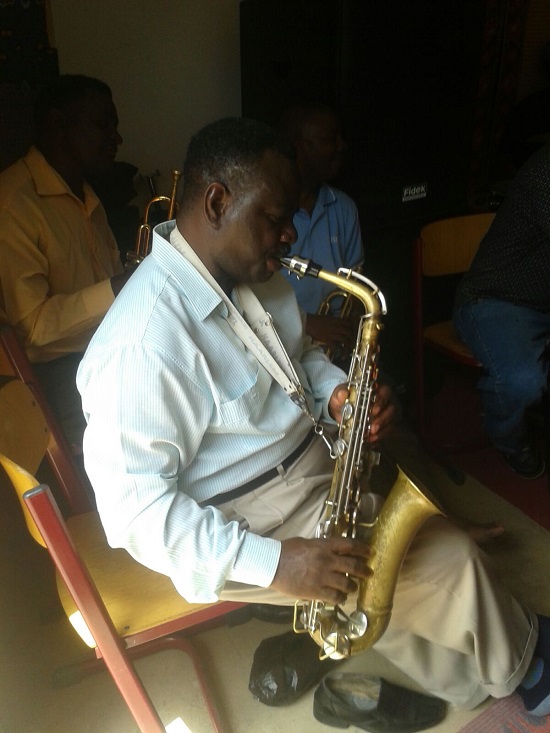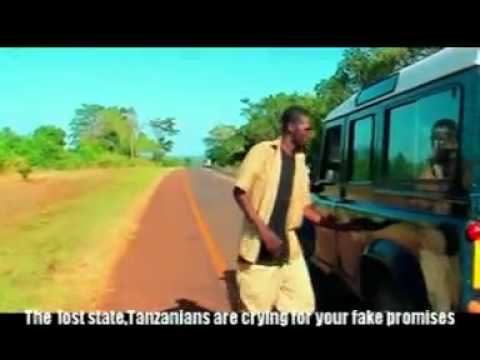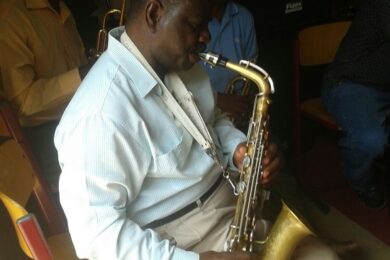I meet Joseph in a small shack in Usa River, near Arusha, north eastern Tanzania. His small business of uploading mp3s and video files to customer’s hard drives and mobile phones is a common way that media is currently distributed across east and west Africa. He provides the latest in Tanzanian film, Bongowood, Nollywood, Bollywood and other less legal film rips alongside Tanzanian R&B/pop, bongo flava and other global pop music.
Local tailors, shop keepers and mechanics all rely on electricity to do their job, but there is a problem. The electricity supply in the Usa River region is fickle and largely unreliable, as it is across most of Tanzania.
I ask him how he manages to keep a business going during these shortages and he says, “It’s really difficult but we just have to wait for it to come back on." A lack of reliable power is an issue that many Tanzanians are vocal about, and although debates and protests are featured in some of the national press there is only one popular music form that addresses these political issues: hip hop. Joseph explains that rappers like Kala Jerimiah and Roma Mkatoliki are talking about politics in Tanzania and they’re not liked by the ruling party.
They rap about big scandals and the corruption in this country. In Roma Mkatoliki’s ‘Tanzania’ (2015) there’s a line which says, "If a politician only wants to get to the White House, then there’s a problem." Everything he sings about concerns the political situation – the doctors drinking a lot and people dying in hospital, poverty, the corruption, the scandals…
Most people involved in Tanzanian hip hop believe in what they do. They know that their political tracks are not going to get them a lot of airplay or shows but they feel it’s a part they have to play regardless. They feel they have to say these things despite how it may affect their earnings.
But hip hop is underground. Although the more popular bongo flava tracks tend to be about what all pop is about – love and loss – politics and popular Tanzanian music did once have a unbreakable link. In Dar-es-Salaam, Tanzania’s unofficial capital, I meet Rebecca Corey who is the co-ordinator of the Tanzania Heritage Project (THP) – an organisation dedicated to the preservation and digitisation of Tanzanian music recorded between the 1960s and 1980s.
Most of the tracks the project is concerned with are muziki wa dansi or Swahili rhumba, specific to Tanzania. She says: "One of the reasons that we started the Tanzania Heritage Project was because we saw a gap between the music of this earlier era and the music that was being played today. Most of the music that you hear today or that young people are playing is not very influenced by muziki wa dansi.
"Of course culture is always changing but the level at which the music of today seems to bear no stamp of that old music is quite noticeable. We wanted to explore that by speaking with musicians, radio DJs, historians, etc. We came to find that because the older music is so inaccessible today, the younger musicians haven’t even had the opportunity to be influenced by it and that’s one of things we feel we are addressing by digitising this music and creating access to it."
As Rebecca continues she reveals that politics and technology have contributed to this generational gap: "The radio stations were privatised during the mid-80s and once private radio stations
starting opening up and the government loosened its quotas for local content, then foreign music really started flooding the airwaves to the point where it was mostly foreign music that was being played. So that became the primary influence: there was a lot of American hip hop and Western pop music coming in and replacing Tanzanian music. As the music that was recorded onto reel-to-reel tape faded into obscurity, it got more difficult to play as the technology evolved and Tanzanian radio switched from analogue to digital broadcasting."
Radio Tanzania was the one and only recording studio in the country during Julius Nyerere’s reign. He was the first president of Tanzania and father of ujamaa (socialism/self-reliance) and held office between 1960 and 1985. After independence from British rule in 1960 Nyerere was keen to promote national pride; and this included an emphasis on Tanzanian culture and music. Nyerere once claimed that "a nation without its own culture is no more than a collection of people without the spirit that brings them together". This philosophy was a driving ideal behind the creation of the radio station and other cultural initiatives.
Rebecca continues: "He [Nyerere] was a big leader in the pan-Africanist movement. He supported revolutionary movements for majority rule all throughout Eastern and Southern Africa. So groups like the ANC (African National Congress) and Frelimo (Mozambique Liberation Front) had their headquarters in Dar es Salaam. Even the Black Panthers from the US came over and found a safe haven in Tanzania. While all of this was happening Tanzania was the seat of all these really exciting movements for self-determination and as a music lover I wanted know, ‘What music was playing at that time?’
"As I started researching this and finding out more, I came to learn that this music played a huge role in supporting these social movements. During the 60s and 70s the government had the only commercial studio in the country at that time and because of socialist government one-party-rule, the media was completely state controlled; there was only Radio Tanzania. All the musicians who wanted to record back then had to go to the radio station or they had to travel to outside of Tanzania to Kenya or Zimbabwe. Everything that was recorded in Tanzania from the 60s to the mid 80s was recorded at this one station on reel-to-reel tape and most of it has never been digitised. (Approximately 90% hasn’t and even then, the material that has been digitised is of a low quality because it was recorded straight from the radio onto cassettes first.
"I was shocked to find that this was the situation. Along with Benson and Erasmus Rukantabula, I decided to start THP to hopefully do
something about this and advocate for the digitisation and preservation of this amazing cultural heritage."
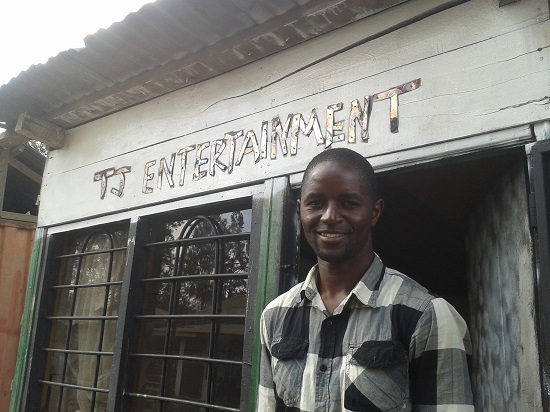
So what does the music sound like in the archive?
"The music that’s in the archive is mainly muziki wa dans which is sometimes is called swahili rumba or swahili jazz, it goes by many names. Essentially, it’s the popular music that was being played between the 60s and 80s that’s a really wonderful mix of influences and sounds that has a big influence from brass bands, Congolese and Cuban
music but with it’s own Tanzanian flavour and feel. It is characterised by a big horn section, big guitar sections with multiple lead guitars in conversation with one another; a very bright, happy and cheery sound. One of the other major characteristics about this music is the message in the lyrics because this music was being created and
performed at a time when independence had just happened so there was this great upsurge of national pride and unity. There was a sense of togetherness and shared purpose in making Tanzania into a nation."
It may well have been a time for celebrating pride and independence but censorship was implemented during this time, so certain messages and slogans were preferred to others: "The music has a lot of moral and political messages in it. When you speak to the artists who were creating this music at the time they’ll tell you, ‘Oh yeah this music came from the heart, this is what we were feeling, this is what we were experiencing.’ But then others will also tell you, ‘Well, we had to create music like this because we were recording at the government’s radio station and they were censoring us, guiding us, telling us what kind of songs we needed to be writing and if we went there to record songs they didn’t approve of then they would tell us to change lyrics or to change the content of songs to fit into government approved messages.’"
The musicians had a sense of humour about this situation; they would record one government sanctioned version but they would perform another completely different version live, depending on who was there in the audience. Alongside censorship, state-approved messages and a single place to record, groups in Tanzania at this time had to receive state sponsorship from companies and organisations. Much like the ‘swinging Addis’ years in 60s Ethiopia, it was nearby impossible to perform
and record with a ‘private’ group.
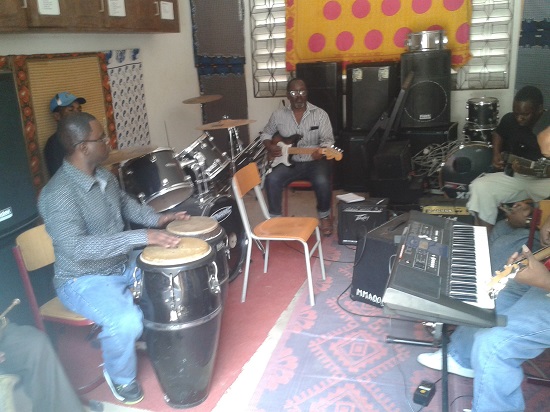
Rebecca tells me about some of the names and sponsorships of these groups: "There were many, many bands at this time who were supported one way or another by state or para-spatial organisations. In order to be registered as a band you had to be sponsored or supported by one of these manufacturing industries or government departments. So, you had groups like DDC Milimani Park Orchestra which was supported by the Dar Development Corporation; you had Otu Jazz which was the trade union; there was the Polici Jazz Group; and Urafiki Jazz which was sponsored by Urafiki Textiles. One of the artists that THP has been working with is John Kitime and he played for a long time with a group called Tenkut Al Mass, which was owned by a diamond cutting company.
"You had a lot of groups like this and also groups like Nuta, which was the band of the political party and Vijana Jazz, which was run by the youth wing of the party at that time."
Alongside muziki wa dansi, there are other gems in the archive which reflect the wider political and social make-up of Tanzania and its position in global politics at the time: "The other day in the archive we came across a reel-to-reel containing American soul dubs which were really amazing. We talked to some musicians who said they were
really influenced by American soul music and fashion. They were wearing bellbottoms, growing their hair out into afros and wearing platform shoes. Even the civil rights movement that was happening in the US ended up influencing, and being influenced by the movements for independence that were happening across Africa at the time. There
were groups of Black Panthers from the US living in exile in Dar es Salaam and they brought over their music which influenced the musicians here.
"We also found a reel-to-reel that had dubs of Bollywood hits from the 70s, which was really beautiful, yet reminds us that for many years, since the 1900s, that there’s been a sizeable Indian population in Tanzania that’s always influenced, and been influenced by Tanzanian
culture. We had musicians tell us they would go to the drive-in movie theatres to watch Bollywood movies every weekend and loved the music, so those influences worked their way into their music as well."
At THP they haven’t just been digitising dusty tapes from the 60s, they’ve also been involved in cross-generational projects featuring young musicians and those original stars of the day. She explains: "We helped to put together a band called Wahenga (‘The Ancestors’). This band was mainly made up of the ‘allstars’ from the muziki wa dansi-era and some younger musicians who were eager to take up the torch and carry that music and tradition forward. We hope that with projects
like this, which bring together older musicians with younger musicians, we will start to build that link between the past and the present.
"Although this music was such a big part of these musicians’ lives for decades, they haven’t been able to play it for years until recently.
What we heard from these musicians (Wahenga) was that they hadn’t been able to play this music for so long because of market and social forces; what’s ended up happening is that for the past 20 to 30 years they have mostly just been playing covers at beach resorts for
tourists, which is sad to hear. They’ve been playing tracks like ‘Lady In Red’ or ‘Yesterday’ for foreigners, rather than their own music. They said they were so happy to get the chance to play their own music again but that also meant it was quite a big challenge as they were a bit rusty. The producer we were working with was really interested in
recording a ‘retro’ album, he said, ‘The people in the west will go crazy for this! They love that old stuff!’"
The ‘retro’ idea was debated during the rehearsals and recording process and then when they settled on a more mixed style, there were some heated conversations between older and younger musicians about whether this style was sufficiently Tanzanian enough or whether it was too influenced from outside sources.
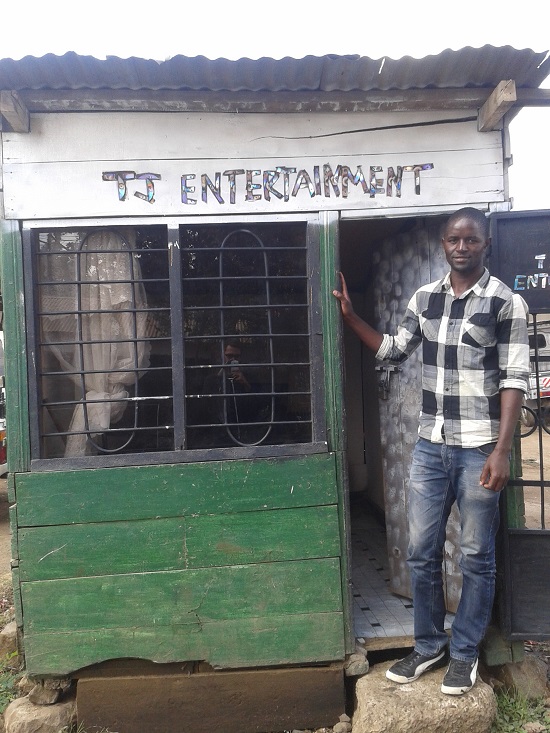
Finally, Rebecca outlines some of the future plans for the Tanzania Heritage Project: "For now, since our focus is educational and non-commercial we are able to share this music with students and for other non-profit purposes. But we really do want this music to be released and we’d love to find some international labels who’d be interested
in releasing an album series. It should be heard and it should
be accessible. I think it’s something we take for granted in the west; that any music we want to hear that was recorded in the past century we can find it. Whether it’s walking into your local record store, looking online or downloading it onto your phone. We don’t have this problem of not being able to listen to our own music because it hasn’t been digitised. When you think about it, it’s really an injustice for Tanzanians, especially young Tanzanians, not to be able to hear the music of their parents’ or grandparents’ generation."
To find out more information on the project you can visit TanzaniaHeritageProject.org
Robbie Judkins has also created a mix from a selection of tracks taken from the THP archive. (Some of the tracks have varying quality due to the condition of the tapes when digitised.)
Tracklist –
- Radio Tanzania – Magenge
- Dar Jazz – Maarifa Yao
- Radio Tanzania – Astrida
- Morogoro Jazz – Jogoo la Shamba
- John Kitime ft. Mama Kitime – Nditigila Cherioh
- Atomic Jazz – Ewa Hamida Wangu
- Kiko Kids – Unknown
- Radio Tanzania – Kitambaa Cheupe
- Radio Tanzania – Dada Asha
- John Kitime – Mleke Mbembe
- Vijana Jazz Band – Weekend
- Radio Tanzania – Bahati
- Radio Tanzania – Kijana Sudi

